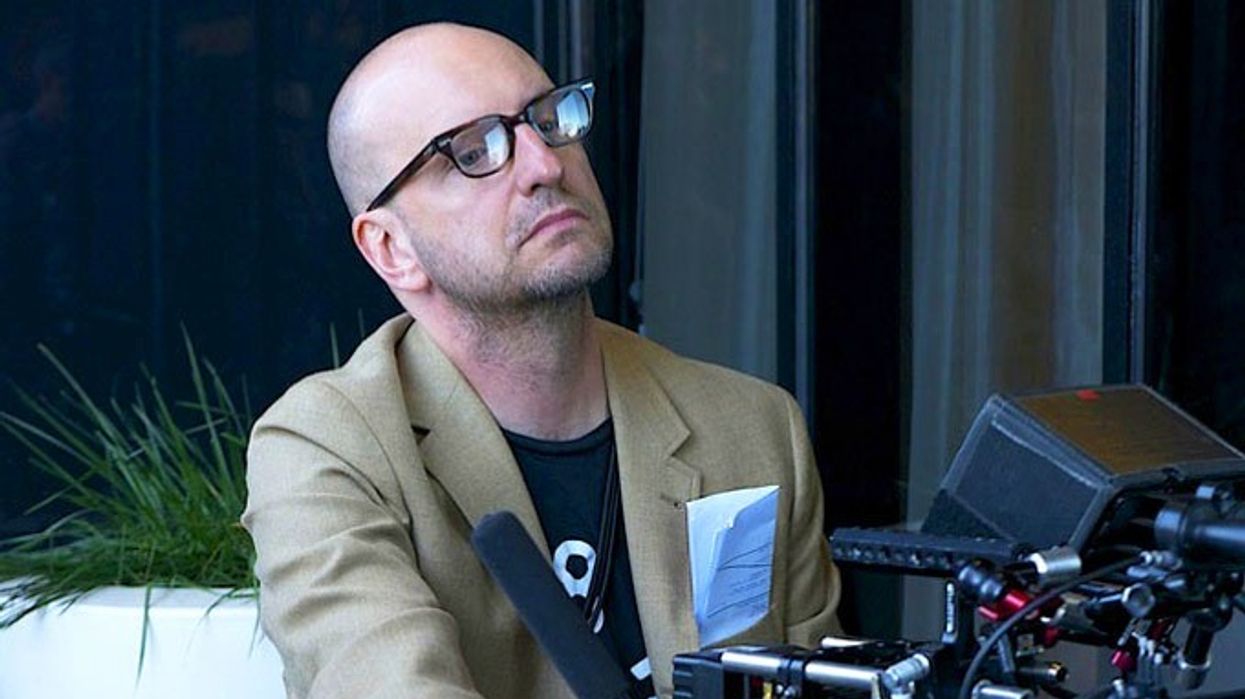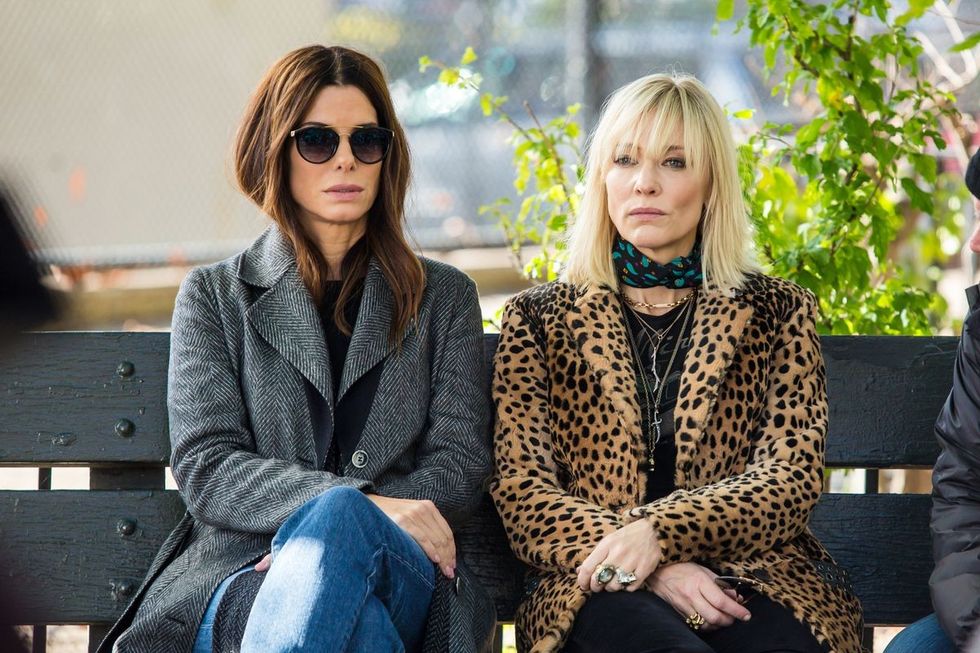What Does Steven Soderbergh Think About the Warner Bros./HBO Max Drama?
What will the future of movie theaters hold?

There are few directors who have embraced streaming the way Steven Soderbergh has. As I type this, we are prepping for Let Them All Talk to drop on HBO Max, and he has worked with Netflix and Quibi in the past.
One thing I admire about Soderbergh is how he always stays ahead of technology and stays informed.
In Soderbergh's recent interview with The Daily Beast, he spoke about the fear that theaters would meet their doom thanks to the new HBO Max deal. And he offered some consolation.
"[The streaming push is] just a reaction to an economic reality that I think everybody is going to have to acknowledge pretty soon, which is that even with a vaccine, the theatrical movie business won’t be robust enough in 2021 to justify the amount of P&A you need to spend to put a movie into wide release," he told the website. "There’s no scenario in which a theater that is 50% full, or at least can’t be made 100% full, is a viable paradigm to put out a movie in. But that will change. We will reach a point where anybody who wants to go to a movie will feel safe going to a movie."
This kind of mathematical approach is very soothing to me. I love movies, I want them back, but the way studios distribute them may not be cost-effective after such a down year.
For a major slate, you're looking at a studio paying $100 to 500 million to advertise those movies. Saving that and pumping them onto streaming means recouping some cash from a huge year of losses due to the pandemic.
Soderbergh went on to say, "I think somebody sat down and did a very clear-eyed analysis of what COVID is going to do in the next year, even with a potential vaccine, and said, I don’t see this as being workable in 2021. Because let’s be clear: there is no bonanza in the entertainment industry that is the equivalent of a movie that grosses a billion dollars or more theatrically. That is the holy grail. So the theatrical business is not going away. There are too many companies that have invested too much money in the prospect of putting out a movie that blows up in theaters—there’s nothing like it. It’s all going to come back. But I think Warners is saying: not as soon as you think."
This is a very tempered look at the situation, and I think it takes the real world and economics into the equation. Sure, HBO Max's biggest offense was not alerting the talent behind the movies about the changes, and they still might face lawsuits, but I do not see them backtracking on the decision.
Where Soderbergh agrees with the deal's detractors is on a case-to-case basis. He asserts no two movies and their theatrical runs look the same. By grouping them together, you generalize problems and solutions.
"I think it’ll finally push the studios and NATO (National Association of Theater Owners) to have some practical and realistic conversations about windowing," Soderbergh continued with The Daily Beast, "because there needs to be more fluidity. There’s not going to be one template that fits every movie. Every movie is different. You need the flexibility. If you’re in a bad situation, and you’ve got a movie that you opened wide, and you know Friday at 3 p.m. it’s not working, you need to be able to get it on a platform as soon as possible. You spent so much money trying to make this work, and if it didn’t, you should be able to do whatever you want to do. Theaters are going to be pushing you out anyway because you bombed."
When we get the next big releases from studios, the new Batmans, the new Marvel, the new Avatars, and Star Wars, people are going to come back to theaters. By then, probably in 2022, there will be a vaccine we all have gotten and a more normal daily life.
Theaters will have to survive until then. That might mean a government bailout or just a drastic reorganization of who owns what. But people will return. The business is too huge to go away.
Blockbusters will be fine, but what about smaller movies?
When it comes to Let Them All Talk, Soderbergh's latest movie, he knows the audience is there. He addressed the future theatrical scenario with these words:
"I think there are a lot of factors to consider when wondering if that’s the way things are going to go. One variable that hasn’t really been scaled up is that, now that we live in an all-digital world, all of these big theater chains have the ability to turn themselves into repertory cinemas in which they screen films from any period of the last 120 years for audiences who’ve never seen them in a theater. There are all these movies from the 70s, 80s, 90s, and early aughts that nobody has seen in a theater. Big hits, great movies. And I’m waiting for somebody to go, OK, we’re going to have a program where everybody knows that on these certain nights, or on the weekend, you put [them] out. When I was growing up, the repertory cinema had the calendar for the fall, and you would know, oh, they’re going to show Deliverance, they’re going to show this. There are options here to get people back into the habit of going to see movies, and giving them something they’ve haven’t seen before, that aren’t being explored at any sizeable scale. So that’s one thing. The other thing is, every time we think that it’s just going to be tentpoles and blockbusters—and art-house movies on the other end—something shows up in the middle and works. Downton Abbey made a lot of money. That movie was coming out when we were in discussions with Warners about Let Them All Talk, and I pointed to that as an example of what I consider to be our audience. That’s our demographic; that’s the audience I want. And look, they showed up for that."
This is a lot to take in, but I think it paints a very hopeful look toward the future. Theaters were always changing. Studios have been prioritizing tentpoles and prices to see movies in theaters have been going up.
No one is asking for my opinion, but I have always favorited tiered pricing. If theaters charged more to see movies opening night, or for tentpoles, they could make extra money off people coming back, while still pulling in people for smaller films. You could even offer family prices without losing too much money because theaters actually make the most from concessions.
But that's all beside the point.
This is all changing now, and the future of theatrical is unsure. Still, I think Soderbergh has the calmest and calculated look forward.
Let us know what you think in the comments.
Source: The Daily Beast














